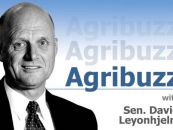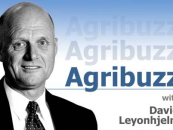Over a decade, Tasmania’s ag sector has suffered a $40m net farmgate loss due to this
moratorium
-
RELATED
- Blog: ‘Do nothing’ a rare approach
- Blog: It’s the Ma and Pa of it
- Blog: ‘Frankenfish’: food’s future
-
LATEST
- ‘Reform CCA’: grassfed levy report
- Suspicious fire at Griffith juice factory
- Taxpayer slug for reef compromise
- Japan, Korea driving grainfed exports
- Lamb down, mutton up to Middle East
- Caratti to appeal corruption ruling
TASMANIA is a pleasant place to live, but from an economic perspective it is a basket case. Take away the subsidies paid by the rest of Australia and living standards would plummet.
Most of the reason for this can be laid at the feet of Tasmanians and the governments they elect. They consistently block projects that would generate jobs and prosperity while fantasising about non-existent opportunities in small business and eco-tourism. A full third of the state is totally off limits to development, notwithstanding vast forestry resources and potential minerals (which can’t even be explored).
Tasmania is also the home of Australia’s Greens. Bob Brown, originally a State member of parliament, made his name leading the campaign to prevent the damming of the Franklin River in the late 80s. He succeeded, and now the hydroelectricity system cannot meet Tasmania’s needs. Electricity generated by burning brown coal is imported from Victoria. The latest indication of Tasmania’s fantasy can be seen in its decision to indefinitely extend the moratorium on the cultivation of genetically modified (GM) crops. This was said to be based on its clean, green and GM-free image, the same claim made when South Australia extended its
moratorium a few weeks ago.
Whether that is the real reason is not at all certain. In SA the Minister who announced the decision let the cat out of the bag in a radio interview when he described the companies that sell the seeds for GM crops as “poison peddlers”. This is a common view in green-left circles, notwithstanding the experience of 20 years of commercial cultivation to the contrary.
The decision has been criticised by the productive sectors of the Tasmanian economy, particularly the State’s farmers. Poppy growers are particularly upset as they have a handy little niche growing opium for the medical market but are denied the opportunity to use GM varieties to increase their yields.
Croplife, which represents the crop protection industry, noted that the government’s own commissioned report states that over the past decade, Tasmania’s agricultural sector has suffered a $40 million net farmgate loss due to this moratorium.
A significant contributor to Tasmanians being indifferent to development is that so many of them are disconnected from the productive economy. More of them (as a percentage) are employed as public servants than in other States. More are also unemployed, while workforce participation is lower.
In fact, the percentage reliant on government for their income is higher than in any other state. Indeed, Tasmania and South Australia are the only States that receive more in welfare payments than they pay in taxes.
As for the argument that Tasmania benefits by remaining GM free, the evidence is no more convincing than with South Australia.
Tasmania certainly produces some tasty delicacies, but their success does not rely on the state being GM-free. There is nothing the State produces, whether smoked salmon, beef, wool, vegetables, cheese, oysters, lobsters, abalone, other seafood, beer or wine that would lose sales from allowing its farmers to utilise modern technology. And there is absolutely no indication of a price premium because of it.
Considering the green orientation of the government and so many of its supporters, the ban on GM crop cultivation is highly hypocritical.
In 2011 the use of GM crops globally was responsible for reducing CO2 emissions by 23 billion kilograms; the equivalent of removing 80 per cent of the cars registered in Australia from the road for one year. GM crops also reduced water use by up to 32pc and pesticide use by up to 86pc in some crops.
It’s time Tasmania received some tough love.
Just as a parent would do with a child that refuses to take responsibility for its behaviour, the rest of Australia needs to stop pandering to its expensive fantasies.
A good start would be to base GST payments to the states on their population. That would put them all on the same financial footing and overcome any nonsense about being special. Tasmania might be a pleasant place, but so are many other parts of Australia.
The Commonwealth should also make it possible for Tasmania to adopt flexible labour practices and reduce the State’s minimum wage so more people can get a job.
And both the State and Commonwealth governments should take a meat axe, to borrow a phrase, to the green and red tape that inhibits businesses big and small from investing and expanding. Tasmania might be an island and subject to the costs that brings, but so are Singapore and Hong Kong. There is no reason it should be a leech on the rest of the country. The moratorium on GM crops is a reminder that it is time to grow up.









